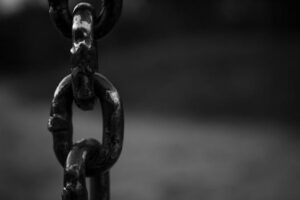By Jennifer Okonkwo, Chioma Okoro, Victoria Okoye

Colonialism significantly affected Nigeria cultural identity, touching on language, religion, government, economy, education and value. The British colonial government (1861-1960) imposed western structure and ideologies, which changed pre-colonial Nigeria culture.
Language was most affected during colonialism. one of a country’s biggest asset is language and there are over 500 native language in Nigeria, of which Hausa, Yoruba and Igbo were the major lingua francas. The British however, imposed English as a language of government, which is now the language of education, government, and commerce. Since the uniting element between Nigeria’s different ethnic groups, English further excluded native language. English are used by most Nigerians today, as they disown their indigenous mother language and hence most of the indigenous language have been endangered.
Further more, colonialism also impacted personal names, richly cultural indigenous names were abandoned or Anglicized. Most Nigerians adopted English or christian names at the cost of a portion of their cultural heritage. Although the English language was a negative impact on Nigeria culture, it also helped in communication. Nigeria is a country with diverse languages and as such one way communication was difficult, but with the adoption of the English language, there was a one way and easy communication among different ethnic groups. For example an Igbo can freely communicate with a Yoruba or Hausa person.
Moreover, on religion and spirituality, christian missionaries led the colonial religion in Nigeria. They spread Christianity, which superseded or merged with existing religions. Africans before colonialization had traditional religion system such as ifà (yoruba), odinani (igbo) and bori (Hausa). Colonist routinely derogatorily called traditional religious practices “pagan” or “barbaric”, which led to a loss of native religiosity. Shrines were dismantled, traditional priest were disempowered and christian values took their places.
Colonialism indirectly contributed to religious divisions in Nigeria. The British promoted Christianity in the south and allowed Islam to grow in the north. This created religious and cultural difference that still influence Nigeria politics and society today.
More so, before colonial rule, Nigeria was governed by monarch, chiefs and elders of councils. The British introduced the indirect rule system where by they used traditional rulers as middle men but held real power. The British also introduced modern government structures such as a central government, judiciary, and legislature. While this introduced democracy, it abolished local political structures that existed for centuries. Colonial border drawing lured different ethnic groups into one political state Nigeria. This introduced ethnic tensions and hegemony conflicts which persist in modern Nigeria politics.
In Addition, Economic transformation and cultural identity goes a long way in explaining how colonialism has shaped Nigeria’s cultural identity. before colonial times, Nigeria had a subsistence farm economy, trade economy and craft-based economy. The British altered Nigeria’s economy to cash crop economy for exportable commodities like cocoa, groundnuts and palm oil. This substituted traditional economy pattern, and increased Nigeria economies’ dependence on western economies.
Western dress code accompanied colonial conquest, replacing native Nigeria dress such as agbada (yoruba), isiagu (Igbo) and babanriga (hausa). Suits and ties are today’s “formal wear”, and native dress is typically reserved for special cultural events.
Moving on, Colonial education promoted values at the cost of neglecting traditional knowledge system including herbal medicine folklore and African philosophy, traditional knowledge is therefore perceived by many Nigerians to be less important than western education.
Conclusively, resistance and cultural revival played its own role on Nigeria’s cultural identity, despite colonial influence, Nigerians have resisted cultural erasure through forces that promote indigenous language, music and culture. Writers like Chinua Achebe and Wole Soyinka have struggled for Nigeria identity on the literary fronts.
A revival of interest in traditional religion, fashion, and tradition is noticeable. Traditional names, clothing, and language are today a part of the everyday life of many Nigerians. Nigeria has been demanding repatriation of looted cultural artifacts, such as the Benin bronzes from western museum the demand is aimed at reclaiming cultural pride and historical identity.
